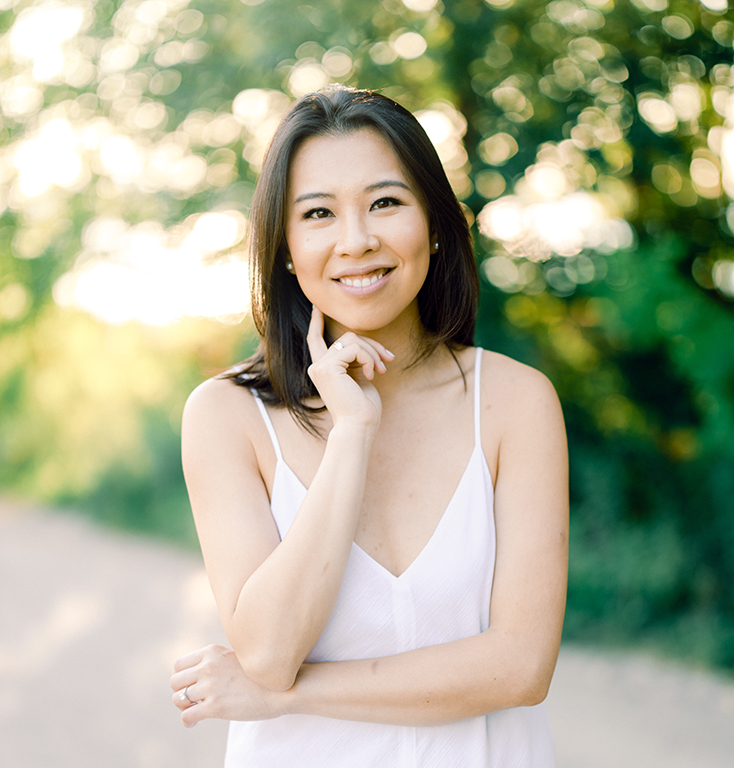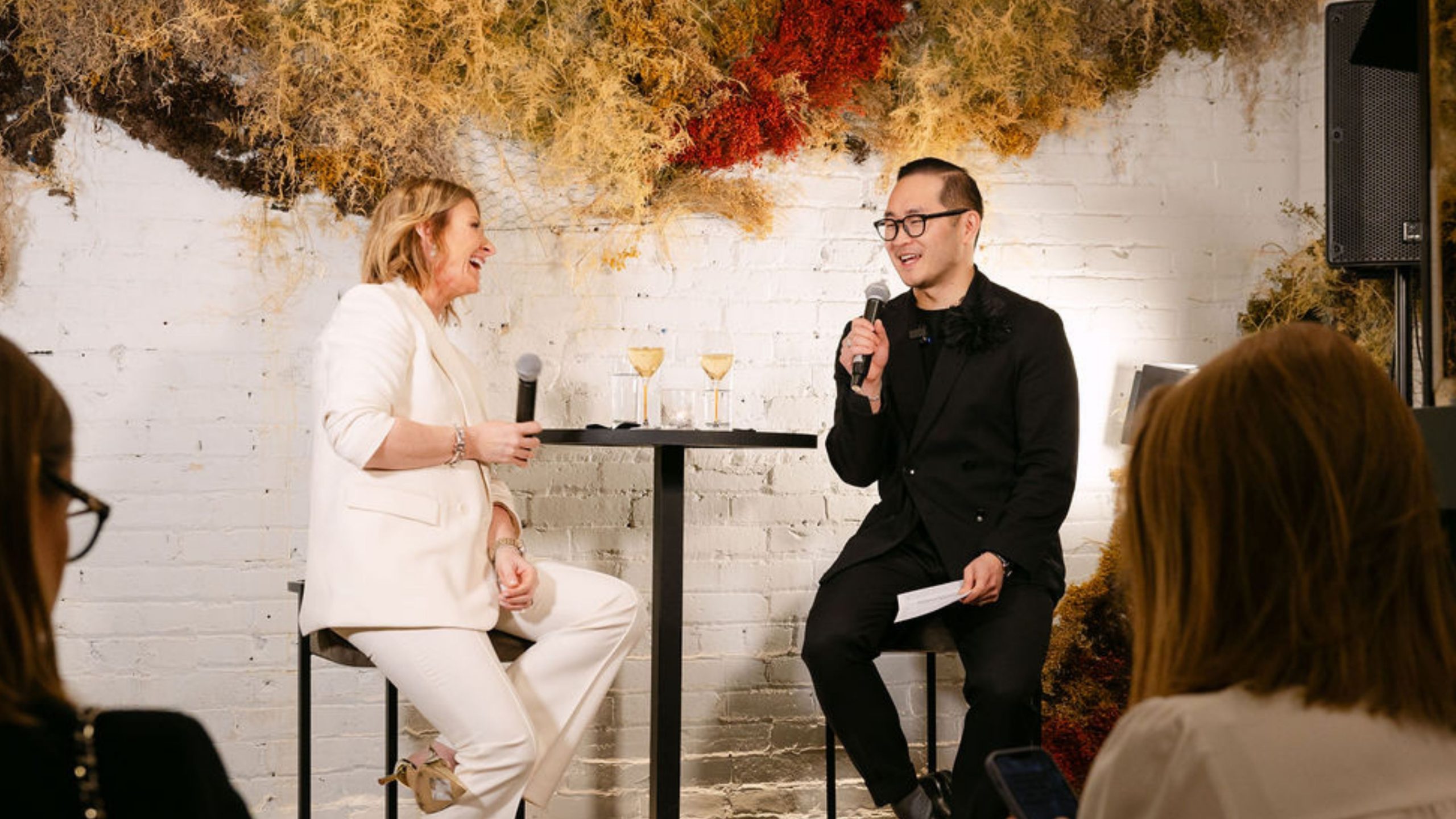[vc_row][vc_column][vc_column_text]
Credit: Bettina Bogar
[/vc_column_text][vc_column_text]Threads is a tights subscription service that was born out of frustration and innovation.
After one too many trips to the drugstore to buy a new pair of tights during the work day, Threads founder, Xenia Chen, had had enough. As an investment banker at the time, tights were a staple in Chen’s wardrobe, but they were not a reliable one.
After much thought, research and a whole lot of passion, Chen left her job as an investment banker and took the leap into entrepreneurship—it wasn’t an easy decision to make. As an immigrant, Chen saw all of the sacrifices her parents made to help build a life in Canada. Leaving her former position and venturing into entrepreneurship meant starting from the bottom again.
“For them, like many others, the “immigrant dream” is to go to a great university, get a good degree, and a stable high-paying job,” said Chen. “And I think the fact that I was going to pretty much start from scratch after accomplishing all those things was incredibly scary.”
Her risk has paid off. Threads is now the solution for women who go through the exact problems with tights that Chen had when she was a part of the corporate world.
Built to balance quality, function and price. Threads tights are high quality and manufactured in Italy. By using a direct to consumer model—either subscription or one-time purchase—it eliminates the middleman and ensures that prices stay fair.
While we might not be going into the office anytime soon, tights will remain a staple in many wardrobes as temperatures drop. For this week’s Women Who Lead spotlight, Bay Street Bull spoke with Threads founder, Xenia Chen, about making a silky smooth solution for a decades-long problem.
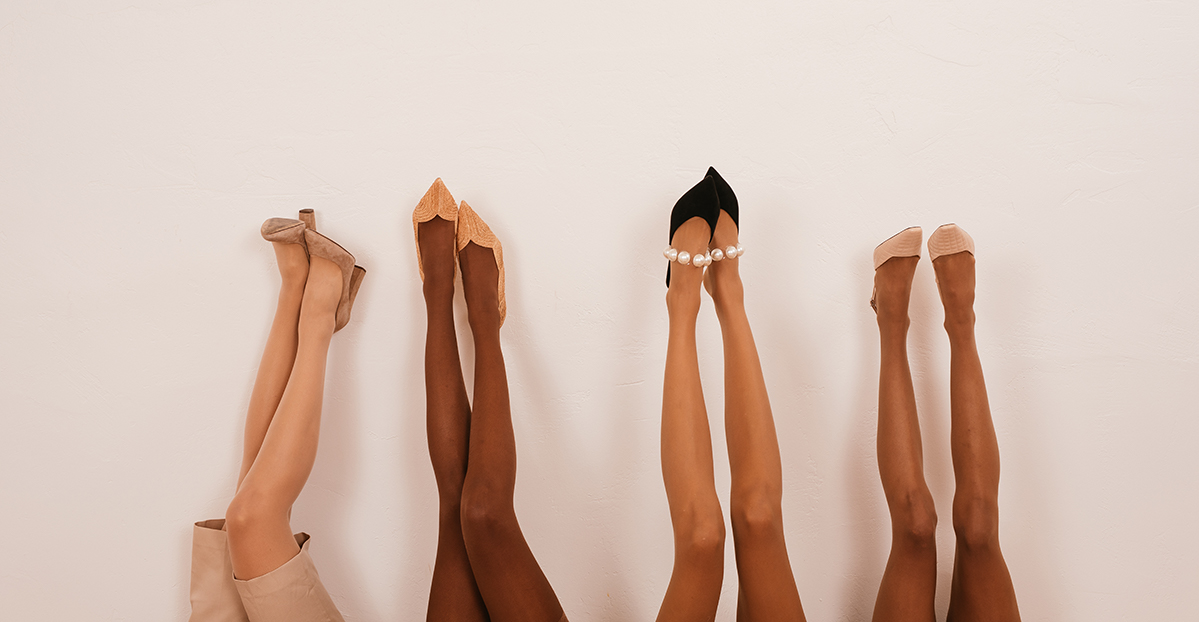

[/vc_column_text][vc_text_separator title=”Q&A” color=”custom” style=”dashed” border_width=”3″ accent_color=”#3c859e”][vc_column_text]Describe the moment that inspired you to go from being annoyed at having to buy tights all the time, to ‘aha!’ I’m going to start a business to solve this problem?
Although I didn’t start Threads until 2018, the idea first came to me in 2015, when I was at my first job out of university in investment banking. I noticed that the topic of tights was consistently one for office chatter amongst my female colleagues. Whether it was complaints about comfort, how much money they were spending on it over time, or simply just bringing up the fact that they were making yet another trip down to the drugstore to buy an “emergency pair” after a rip, it was clear women were NOT happy with their current purchase experience when it came to hosiery.
I remember thinking: “How is it possible that this age-old wardrobe staple is such a paint point in the year 2015? Why isn’t there a beloved brand out there? Why is it that you’re either choosing between spending $12 at the drugstore for a pair that sucks or spending $60 on a pair that’s comfortable, but still has some sort of shelf life before it rips or wears out?”
I started doing more research into the industry and realized that many of the brands we buy from are actually owned by these larger companies whose main focus is not womenswear. Their supply chains are long and each link takes a markup – and that price eventually falls on the customer. We work directly with our factory and we’re able to cut out the middlemen. The result is a luxury pair of tights at a fraction of the going price.
What was the process of going from an investment banker to an entrepreneur like?
In investment banking, you generally know exactly what’s expected of you in a certain role and there’s no shortage of precedents of how to tackle a certain project or assignment. Even if I was working long hours, I generally knew what the path was to get to the result I was looking for. Entrepreneurship is not like that at all. Every day is different and every problem is unique. I think in order to be successful, you need to be comfortable with taking a path that’s never been taken or doing things in a way that’s never been done. I actually had to unlearn a lot of things I was taught in investment banking in order to make myself a better entrepreneur. The biggest thing was learning that “done” is better than “perfect”. There is so much iterating and testing that should happen when you’re starting a new business that you need to be comfortable with this idea that what you put out into the world today is most likely not going to be the final iteration, period.
Was it a difficult decision to make?
In retrospect, it seems like a no-brainer, because I feel more fulfilled at work now than ever before. But at the time, it was absolutely a difficult decision! You know, my parents and I are immigrants—we moved to Toronto when I was 5 years old. I have the highest respect for everything they’ve done and sacrificed for us to build a life in Canada. And for them, like many others, the “immigrant dream” is to go to a great university, get a good degree, and a stable high-paying job. And I think the fact that I was going to pretty much start from scratch after accomplishing all those things was incredibly scary. My family was so supportive from the beginning, which I’m so thankful for, but it was still a difficult and scary decision.
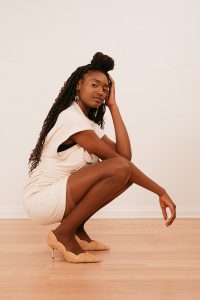

What was the biggest challenge you faced in bringing Threads to life?
There were so many challenges! I had no background or connections in the textiles world and entrepreneurship was also completely new to me—I was essentially starting from ground zero so everything was a bit of an uphill battle. However, the biggest challenge for me was starting Threads on the side while I was still working my (then) full-time job. I would get home from work around 8 or 9pm most weekdays and then begin my Threads workday. Most weekends were spent working on Threads. It was a lot of work, but I was so happy that I was finally putting pen to paper on something I had been dreaming of since 2015.
How long did it take to find a manufacturer and final product that you were satisfied with?
It took me about 18 months to land on a factory that I was really excited to work with and developed a great relationship with. I shopped around a LOT. It was important for me to not only have a product that I was super happy with, but I also wanted to find a factory partner I knew we could develop a relationship with for the long-run.
A big part of Threads mission is to provide a product that is reliable and high quality, but also comfortable. How does feeling confident in what you’re wearing, affect your own overall confidence?
I think it 100% affects your own overall confidence. I definitely feel and act my best when I am comfortable! I think there is so much psychology behind this “look good, feel good” mantra and I believe women deserve to feel good when going to work. We’ve actually partnered with Dress for Success a few times in the past, donating hosiery and outfitting women for jobs and interviews.
You have a very female-focused staff, why is this important to you?
I think we’re in a unique position as a young company to not only establish ourselves as a great Canadian business and a leader in the space, but also establish ourselves as an amazing workplace for women. I feel so lucky every day that I’ve had this opportunity to start a business and I feel it’s my duty to help pave the way for other women to thrive in their careers.
Obviously with the COVID-19 pandemic, not many people are heading to work. How has this affected Threads’s business strategy?
COVID-19 hasn’t affected our long-run business strategy. Our business fundamentals remain the same. While it’s true that a lot of our customers are women who wear hosiery for work, most of our customers wear our product beyond the workplace. I strongly believe that hosiery will always be a wardrobe staple—whether it be for work or play.
That being said, COVID-19 has most definitely forced us to reconfigure our short-term strategy. Back in March when everything was shutting down, it was a pretty daunting feeling not knowing when things were going back to normal. We were lucky that we were able to reconfigure our manufacturing operations to produce masks early on in the pandemic. We launched Threads Helps in early April, in an effort to make masks accessible for everyone. We also have a charitable partnership with Margaret’s Housing & Community Services, where customers can purchase a pack of masks to donate and we’ll match the donation.
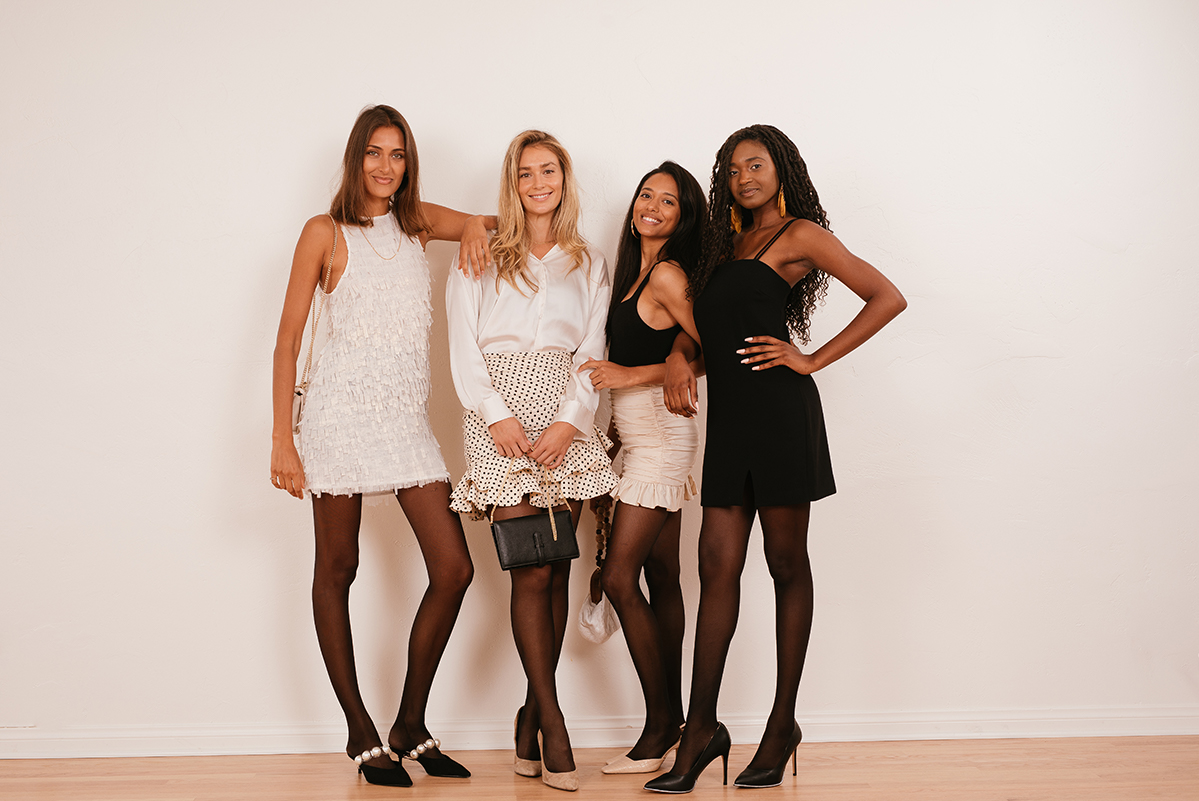

What do you know now, that you wish you knew when you started Threads?
I wish I knew that this was going to be a crazy ride. That there are intense highs and lows and that’s totally normal! I saw a quote the other day by Michele Romanow and it said “ The natural state of a growing company is chaos, not order.” I think that’s so true, but I wish someone told me that when I was first starting.
RELATED: Listen to Michele Romanow on the first episode of Bay Street Bull‘s podcast Mission Critical
Where do you hope to see Threads in the future? Women’s workwear in general?
I am very excited for the future of women’s workwear! It’s come such a long way in the past few years. Women’s workwear used to be synonymous with boxy pant-suits and slimmed down versions of menswear, but not anymore. It’s so great to see companies like MMLaFleur, Argent, and others, exist. I think future generations of women are going to have so many more options.
As for Threads, we have a few exciting things coming down the pipeline in 2021. We want to be a leader not just for hosiery, but for all wardrobe staples. We’re constantly talking to our community and learning about what they want. We’ve learned there are so many wardrobe essentials that could be made better, and at a better price. That’s what we want to tackle in the future. [/vc_column_text][vc_separator color=”custom” border_width=”2″ accent_color=”#3c859e”][/vc_column][/vc_row]


